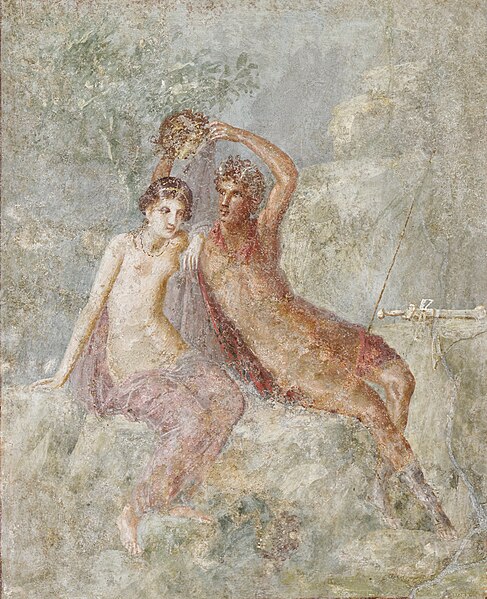In Greek mythology, Andromeda is the daughter of Cepheus, the king of Aethiopia, and his wife, Cassiopeia. When Cassiopeia boasts that she is more beautiful than the Nereids, Poseidon sends the sea monster Cetus to ravage the coast of Aethiopia as divine punishment. Queen Cassiopeia understands that chaining Andromeda to a rock as a human sacrifice is what will appease Poseidon. Perseus finds her as he is coming back from his quest to decapitate Medusa, and brings her back to Greece to marry her and let her reign as his queen. With the head of Medusa, Perseus petrifies Cetus to stop it from terrorizing the coast any longer.
Perseus freeing Andromeda after killing Cetus, 1st century AD fresco from the Casa Dei Dioscuri, Pompeii
Perseus defends Andromeda from the monster Cetus by pelting it with stones. Corinthian amphora, 575–550 BC
Andromeda being tied for sacrifice. Apulian red-figure vase, c. 430–420 BC
Perseus holds up Medusa's head so Andromeda may safely see its reflection in the pool below. Fresco, 1st century AD, Pompeii
Cepheus (father of Andromeda)
In Greek mythology, Cepheus was the name of two rulers of Aethiopia, grandfather and grandson.
Cepheus (father of Andromeda)
Metamorphoses of Ovide (the king of Greece, Céphée, and the queen, Cassiopé, thank the hero Perseus for having delivered their daughter Andromeda, offered in sacrifice to a marine monster) by Pierre Mignard (1679) at Louvre Museum, Paris






